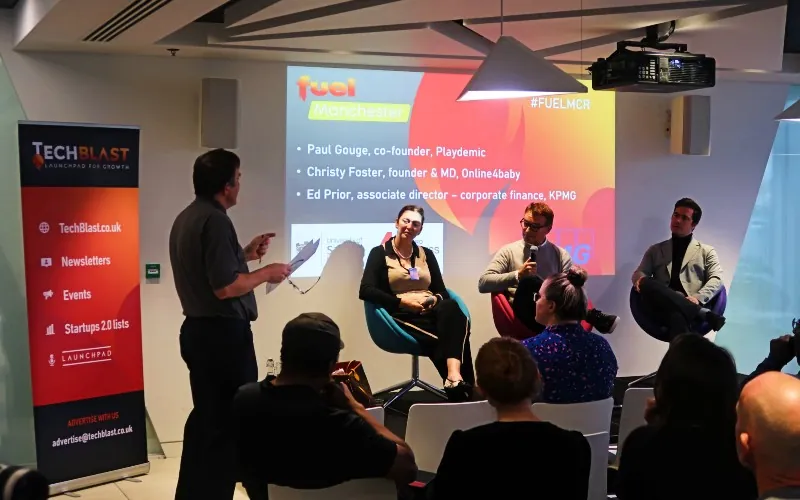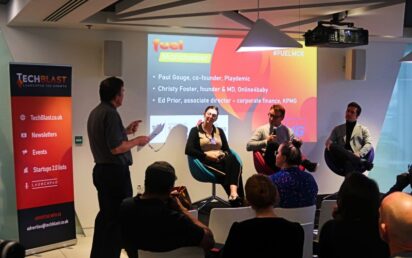Focus on ambition, agility and organic growth was the key advice to up-and-coming founders from a stellar panel at TechBlast’s first annual FUEL Manchester event.
The breakfast event – which preceded a series of behind-closed-doors masterclass sessions where startup and scaleup businesses were given a direct line to industry experts – saw an array of leading figures from the technology sector offer their top tips for growth.
Richard Potter co-founded Peak in 2015 alongside David Leitch and Atul Sharma. The AI company has worked with the likes of Nike, Molson Coors and PepsiCo and now numbers over 225 employees split across the UK, US and India.
In August 2021, Peak announced a $75 million Series C funding round led by SoftBank’s Vision Fund II, bringing total funding to date to $119m. It seems a world away from the pub chat where the idea was born.
“In the second wave of AI, we believe that companies are going to run their businesses using a dedicated central AI platform – it will house the intelligence and distribute it across their business,” CEO Potter told the 80-strong audience of entrepreneurs and industry figures at KPMG’s Manchester headquarters.
“The opportunity for us isn’t to be a niche provider of AI software in the UK – it’s to serve every business of a certain scale globally. In order to build that business, we knew we needed funding… it’s very expensive to build an enterprise software business.
“We didn’t want to sit on the sidelines and say: ‘Oh, we had that idea. But we didn’t quite pull it off.’ If there’s an opportunity to build a Salesforce-size company in the AI space, we wanted to try and do it.
“But then you probably need the world’s biggest investors in your corner to do that, which is why we took the funding from SoftBank.”
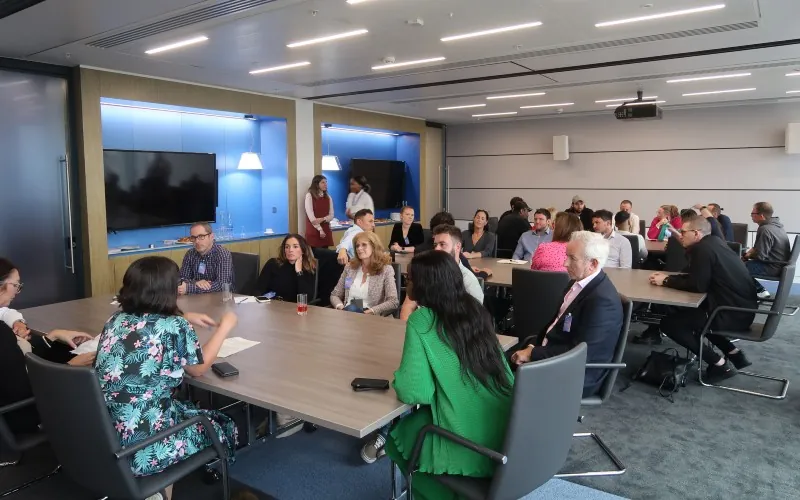
FUEL Manchester masterclass session
Agility
Paul Gouge co-founded Playdemic in 2010 and helped create the cult mobile game Golf Clash. The business was majority-acquired by Warner Bros in 2017 before videogame giant Electronic Arts snapped it up in a £1 billion cash deal in 2021, when Gouge was a minority shareholder.
Gouge – investor and adviser to a number of businesses – says “agility is the name of the game”.
“You have to put things in place at the start of a business which, when the market changes rapidly, enables you to respond resiliently,” he explained. “Kodak was a business that grew to dominate the photography film industry, but didn’t see digital happening – or when it did, it wasn’t agile enough to respond. And we all know how that story ended.”
Another key consideration for investors is the size of the market opportunity. “If you want to build a Michelin star restaurant, you might have incredible chefs and deliver something that people are going to get great joy from – but is that a scalable business?” he offers as an analogy.
“You’re not going to have 1,000 Michelin star restaurants, whereas with Five Guys, there’s a model there that is scalable and repeatable.”
Serial entrepreneur Gouge revealed that he will be announcing a new venture “in the next two to three weeks”.
“We’re back on the horse and going to give it a go!”
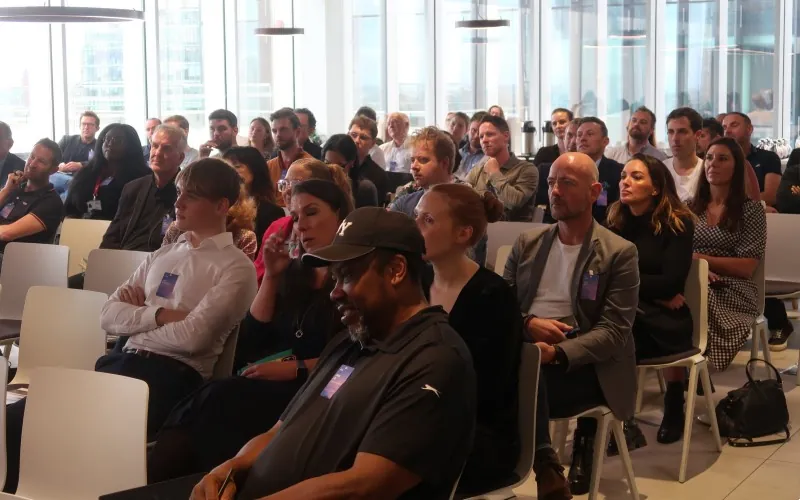
Organic growth
Collctiv co-founder Amy Whitell has seen the group payments FinTech process $46m worth of transactions since launch in late 2019, with $26m of that in the last year. Last year it was the only British startup in the Techstars NYC Accelerator programme.
“My approach to growth is to be very product-led,” she told the audience. “We stay really close to the customer and have a product that’s very viral in nature: people use it, tell other people about it and they then begin to use it.
“We don’t waste money on marketing because I can buy cohorts of users, but they’re crap users compared with the ones who use us organically.”

Green shoots
Ed Prior (pictured above, right with Gouge) recently joined KPMG as associate director – corporate finance after eight years at GP Bullhound.
“I lived in Hong Kong for a year, I’ve done deals all around the world – Europe, America, the UK – but Manchester and the North West has always been home,” he said before explaining his decision to move.
“I really wanted to be able to do more deals in the North West and use my place in the ecosystem to help more businesses here and support the next generation of entrepreneurs.”
On the funding landscape, he says there are “plenty of green shoots”.
“The most important thing for the entrepreneurs in the room to realise is that there’s been a mindset shift from the venture capitalists and the private equity: three, five years ago, it really was ‘growth at all costs and profitability will come in due time – we’ll worry about that later’.
“That’s definitely now no longer the case: what the funds are looking for now is measured growth with a pathway to profitability coming through.”
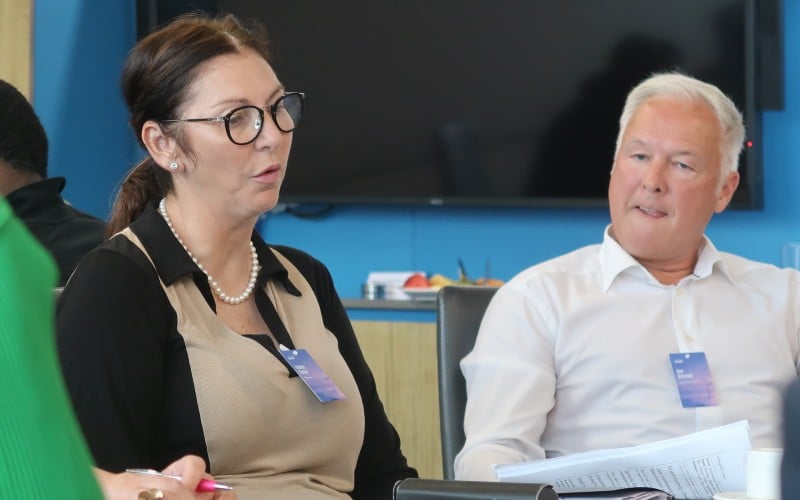
Online4baby founder Christy Foster during FUEL Manchester masterclass session
Financial hygiene
Christy Foster was raised in Oldham by a single mother and quickly showed her entrepreneurial talent. By the age of 12, she was working on a market stall before and after school each day to earn extra money.
In 1987 she co-founded Online4baby and has grown it into a £44m turnover business with a £4m EBITDA – all with 36 staff. It is on track to become a £100m-turnover concern over the next three years.
“I just get figures: I look at the numbers and, if I can get my money back on something – not lose money on it – it’s not a risk. That’s been my risk-taking attitude for 20 years,” she said.
“With every business, you need to look at figures, you need to do your housekeeping, you need to do your hygiene.”
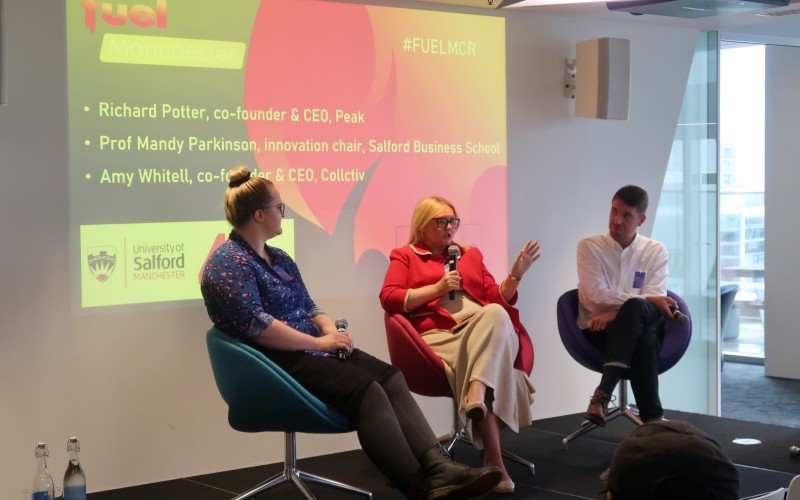
Salford Uni support services
Professor Mandy Parkinson (pictured above with Whitell, left, and Potter), chair in business innovation at the University of Salford Business School, told the audience that her role involved working with industry to support businesses in taking their next step towards growth.
“It’s about mentoring businesses and supporting them in terms of tech adoption, in terms of sustainability, or thinking about it from the commercial business side – not the tech in itself,” she explained.
One such move might be to advise a founder on winning funding through a Knowledge Transfer Partnership.
“We moved into the tech innovation space – collaborated with other universities and the private sector to launch the Cyber Foundry, the AI Foundry. That has allowed us to keep growing and get more expertise.”
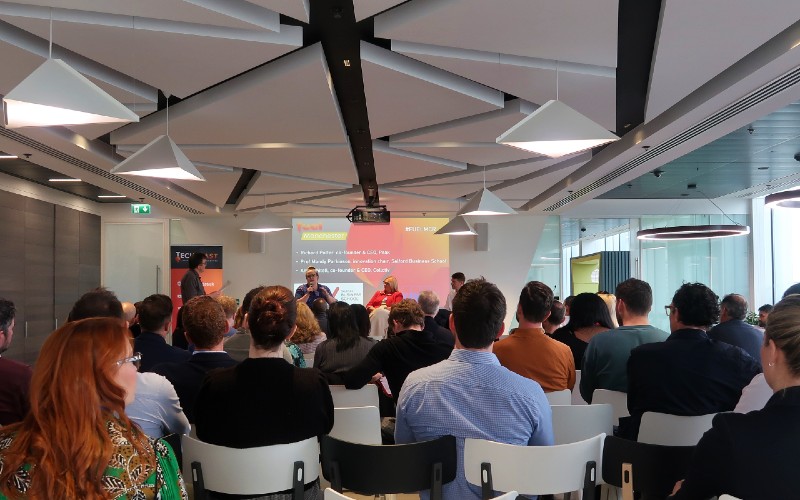
Purrfect sale
Amman Ahmed co-founded MusicForPets and the business was acquired by Hollywood hip-hop giant Create Music Group a few months ago for an undisclosed eight-figure sum.
In a Q&A from the audience, he told event host Chris Maguire that more than 50m pets are now calmed by its music across streaming and video platforms worldwide.
“My advice is to get to profitability as quickly as possible and be super lean,” he said.
“When you have a crazy idea such as creating music for pets, you’re not even going to bother pitching to investors, because they’ll laugh at you! That was just a no-go. The only option then was profitability!”
He adds: “There was never a ‘hockey stick’ growth with us – it was just sustainable, step by step.”
The event was sponsored by KPMG and the University of Salford Business School.

